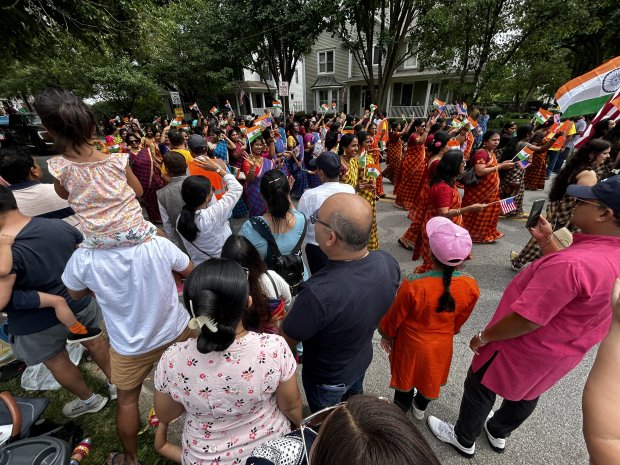In what a federal judge hoped would be “the final installment in the long-running challenge” against the Obama Presidential Center’s construction in Jackson Park, the former president’s foundation again declared victory against Protect Our Parks late Tuesday.
Seventh U.S. Circuit Court of Appeals Judge Diane Wood — joined by Judges Ilana Rovner and David Hamilton — ruled against the parks advocacy group, which argued in October that the city’s agreement to lease a slice of Jackson Park to former President Barack Obama’s foundation to build a museum and complex violated the public trust.
“Construction of the Center is now well underway, and yet the plaintiffs demand that we put a stop to it and, we assume, order the defendants to restore the site. But they have failed to show that they are entitled to any relief relating to their overarching claim against the Center, no matter under what theory,” Wood wrote in an April 8 decision.
Protect Our Parks did not immediately respond to a Tribune request for comment. Attorneys previously suggested they could take the case to the U.S. Supreme Court. Foundation CEO Valerie Jarrett celebrated the ruling.
“Our focus through the legal journey has been to protect the interests of our community and ensure we are able to deliver on the commitment we’ve made to bring our world-class institution to Chicago,” Jarrett said in a late Tuesday statement. “We’re eager to bring the Obama Presidential Center to life and this ruling brings us one step closer to doing just that.”
The city and state cleared the way for Obama’s foundation to set up its museum campus in historic Jackson Park roughly a decade ago. The city gave it final approval in 2018, leasing 19.3 acres to the foundation. The museum plans — including its impact on the park and the roadways around it — underwent a battery of federal reviews around the same time.
Protect Our Parks and allies sued, arguing the federal environmental oversight process fell short; that the foundation had not lived up to its financial promises to the city; and expressing concern about the fate of old-growth trees, migratory birds that nest in the park, and alterations to the historic nature of the park, which served as grounds for the 1893 Columbian Exposition. They did not oppose construction altogether, but wanted the center to move west, near Washington Park.
The group’s legal attempts — while initially delaying construction — have been unsuccessful, but the group argued in its latest attempt that U.S. District Judge John Robert Blakey erred when he ruled in favor of the foundation, several federal agencies and the city of Chicago.
Wood wrote that POP had not presented new arguments and that the court found “no legal error in our earlier analysis of POP’s case.”
The decision said the federal government had no authority to choose another site or force the city to, that environmental assessments were “very thorough,” and that the plaintiffs “play no part” in any financial agreements between the foundation and the city.
The museum is slated to open in 2026, but the planned athletic center will still open in late 2025.
aquig@chicagotribune.com



